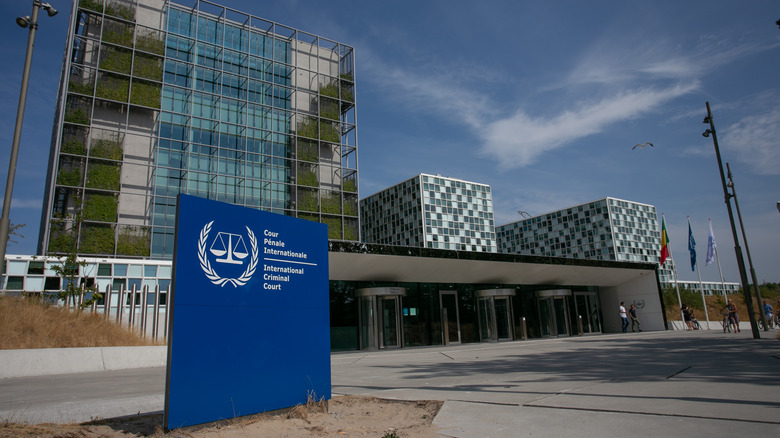How Are War Crimes Prosecuted?
Discussion of war crimes arises often in history books and political discourse, but have you ever stopped to wonder what exactly they are and how they're prosecuted? The term "war crime" doesn't simply refer to any crime committed during a time of war, like burglary or assault. Instead, "war crimes" are actions taken by armies, military leaders, or governments during times of conflict that are so egregiously outside the norms of war that they are sometimes considered "crimes against humanity" (via Crime Museum).
Within the broader group of war crimes, there are several sub-groups: crimes against peace, such as waging a war of aggression that violates international treaties; violations of the customs of war, including the killing of hostages or ill-treatment of prisoners of war; crimes against humanity, like the murder of civilians; and genocide (via BBC). Since war crimes were first defined following World War I, there have been several high-profile war crimes with global coverage, including the genocide during the Holocaust in the 1930s and 1940s and the Rwandan genocide in 1994. Perpetrators of both of these genocides were tried for war crimes as all alleged war criminals are: in the International Criminal Court.
Prosecuting war crimes in the ICC
Since 2002, all war crimes have been tried at the International Criminal Court, or ICC (via Crime Museum). The court was created by an international treaty called the Rome Statute, which was signed by 108 countries (via the International Criminal Court). So far, 30 cases have been brought before the ICC. In order for a case to make it to the court, a crime must fall under one of the subgroups of war crimes. Additionally, the person or persons being tried must be from one of the 108 countries that agreed to the Rome Statute. If countries or militaries outside of the statute commit a war crime, they cannot be tried.
Once a criminal is tried and convicted at the ICC, there are two possible punishments: imprisonment or execution. Criminals who are given prison sentences usually face extended periods of time in jail. For instance, Dominic Ongwen was convicted of war crimes in Uganda and sentenced to 25 years in prison. Since it was first created, the International Criminal Court has issued 10 convictions.

